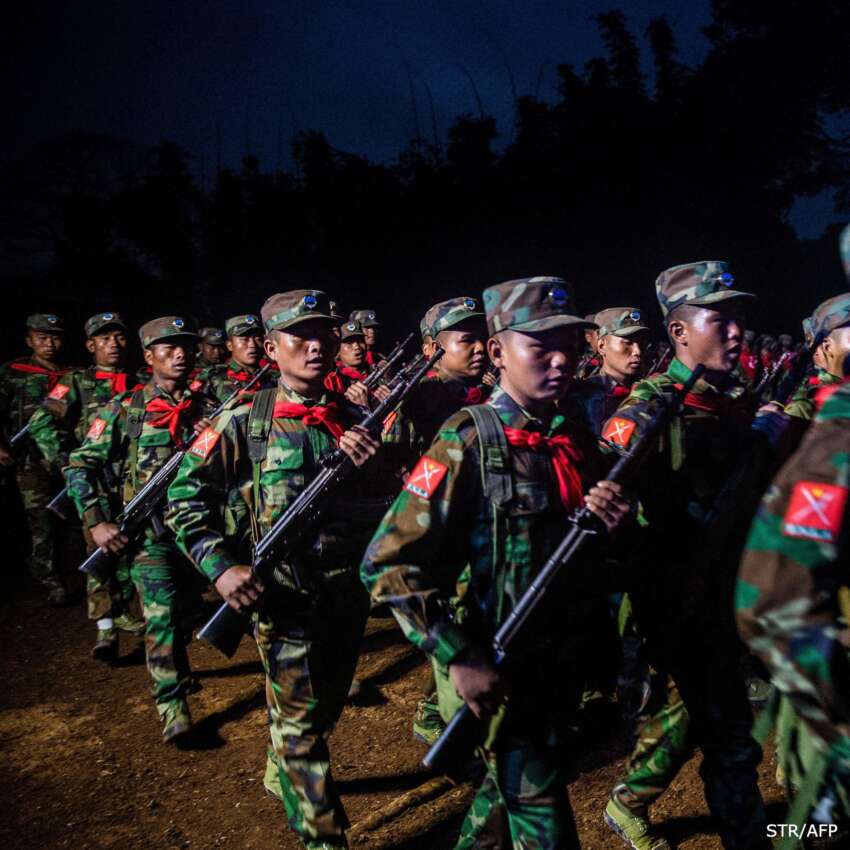
The Ta’ang National Liberation Army (TNLA) has announced that despite frequent territorial conflicts between ground forces with the Kachin Independence Army (KIA), they will continue to collaborate in the fight for Myanmar’s nationwide liberation. This statement was made during a media meeting with TNLA Deputy Secretary-General Colonel Tar Pan La on May 28. Colonel Tar Pan La explained that TNLA and KIO have maintained regular meetings and have signed approximately three alliance agreements, and they are currently discussing how to handle potential friction in 2024-2025 and how to cooperate in the nationwide revolution. He emphasized that the liberation of a single region is insufficient, and true security can only be achieved through the liberation of both allied regions and the entire country’s population.
The colonel explained that the friction between KIO and TNLA has emerged due to the deterioration and loss of political culture resulting from successive military coups. The absence of proper platforms for dialogue has caused problems to escalate. Currently, they are focusing on two main agendas: preventing and managing ground-level conflicts from escalating, and discussing how the two allied groups can cooperate to achieve liberation for both their territories and people as part of the broader national liberation struggle. He stressed that temporary liberation of individual regions would not provide lasting security.
Frequent ground confrontations between KIO/KIA and PSLF/TNLA forces have occurred in areas west of the Shweli River, along the Shan-Kachin border, and in Ta’ang regions. Military tensions arose in 2023 near the Timar gold mining area at Mile 105 in Muse due to territorial disputes and taxation issues. Similar territorial disputes exist in various regions including Mantong, Kutkai, Mong Ko, Namhom, Namhpakka, Namkham, and Mong Wi. However, these areas are home to mixed populations of Kachin, Shan, and Ta’ang/Palaung peoples, and both organizations are working to resolve these issues through dialogue and agreements.
The TNLA leadership acknowledges that the path to national liberation requires careful coordination between allied forces and a unified approach to ending military dictatorship. They are actively working on both immediate conflict resolution and long-term strategic cooperation for achieving nationwide freedom. The organization maintains that despite territorial disputes, the ultimate goal remains the complete liberation of Myanmar from military rule, which can only be achieved through continued cooperation between ethnic armed organizations and a unified struggle that encompasses all regions and peoples of Myanmar.



